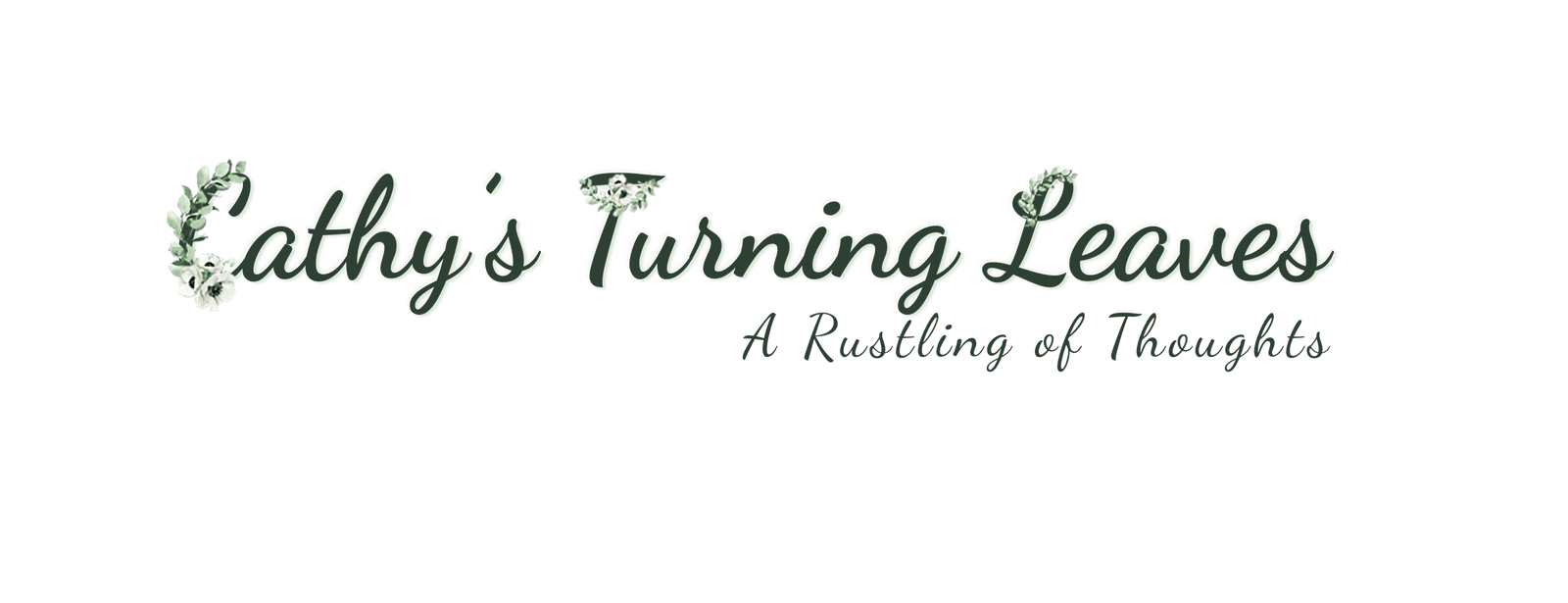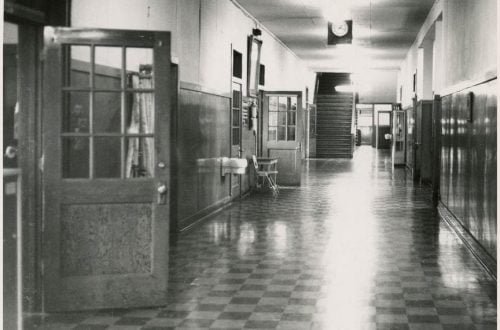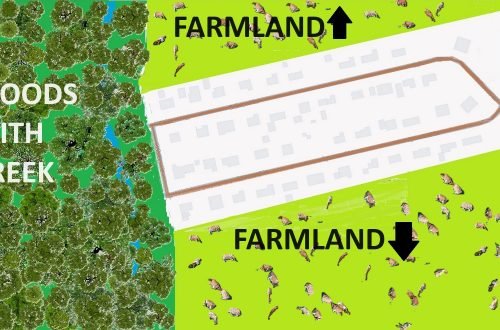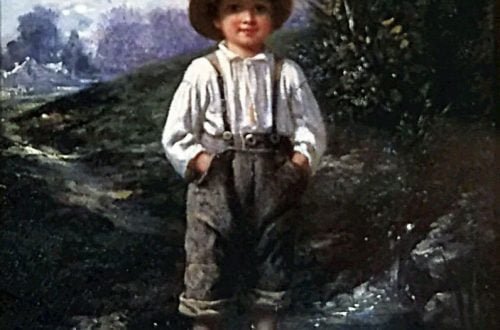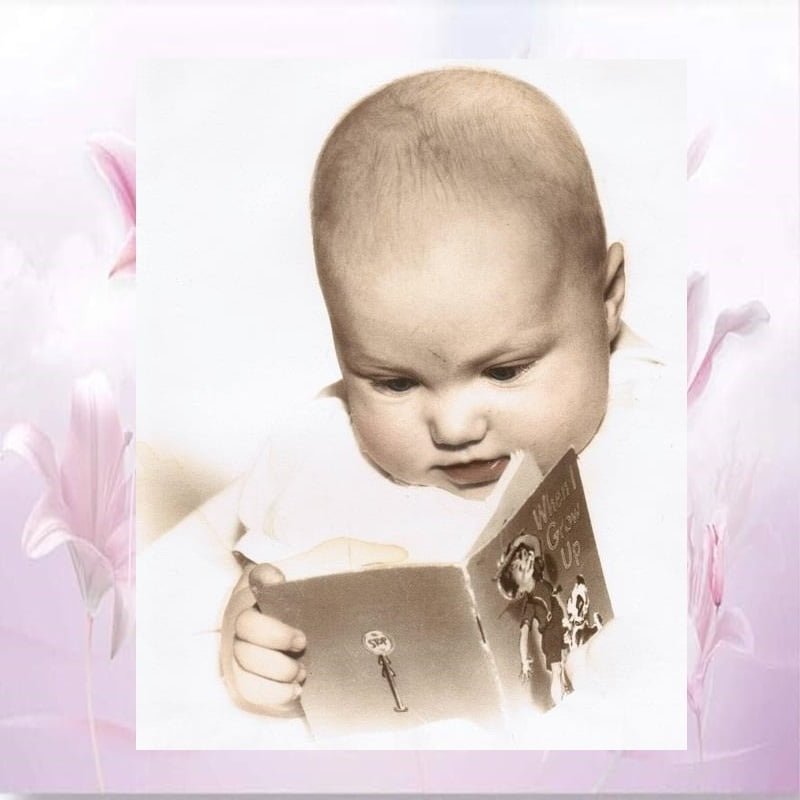
Me, in Search of Self
This is a post I’ve been putting off, but it needs to get done and over with. It’s about me being born a little smarter than the average bear.
No matter how many times I say I’m not bragging, some people will think I am. But the truth is, I have spent most of my adulthood hiding it due to the social difficulties it causes. As an adult, I often deliberately acted dumb about a subject I knew a lot about. But I’m tired of pretending to be something I’m not. And it’s impossible to tell my story without revealing my high intelligence (that phrase was hard to type). No, I’m not bragging. The fact is, I was so emotionally messed up my whole life, that I never used my smarts and talents to accomplish anything at all. I have made no valuable contributions to society. I feel like my life has been totally wasted because I have been unable to get my head together and achieve things I should have been capable of.
I need to start with my biological father, because I think I must have inherited his brains. Although my mother was very smart in many ways, she was no genius.
My daddy was born in poverty in Arkansas. He was the youngest of several siblings, and a late life baby. His brothers and sisters ranged from high schoolers leading their own life, to those who had already married and left home. So he was essentially an only child.
His father died when he was still a baby, and his mother couldn’t read and write, so he had no exposure to books until he started first grade. But once those books came into his life, he was hooked. He was soon reading his way through the school library.
He joined the army as soon as he was old enough. I don’t know if that was his way of escaping poverty or what. But the army quickly learned he was very smart and gave him an IQ test. He scored extremely high. They decided to teach him how to use the computers. This was the early 1950s, and computers were very new. Although he had never been exposed to anything resembling a computer, he mastered them so fast, that the army began flying him to bases all over the country to teach their use to others. If he hadn’t gotten killed when he did, I wonder if he might have ended up working for NASA. They were scouring the country for minds like his.
Along the way, he and my mother married, and in due time, I came along. Since both my parents were avid readers, I was surrounded by books from day one.
So now I’m at the part where I need to explain how I got started reading when I was two years old. It all began with a young neighbor girl.
Cindy was in Jr. High School, and didn’t really have any friends. She started hanging around at our house. My mother didn’t mind at all, since Cindy would play with my toys with me, or read to me. She kept me busy while my mother was doing her housework and cooking and gardening.
Cindy adored sitting me in her lap while she read my pre-school books to me. There are certain things a 2 year old doesn’t pick up on, and it was years before I learned Cindy was a little slow mentally and had learning difficulties. When I found that out, I understood why she read in the peculiar way that she did.
She would put her finger under each word in turn, and slowwwly sound it out. It didn’t matter if the previous sentence had most of the same words as the one she was reading now. She would sound out each and every word the same way every time, as though it was a new word.
This fascinated me, and I would follow that finger like a scent hound. Even that young I would get hyper-focused on anything that caught my interest. I started recognizing common words even before she so carefully pronounced them. Those little kid books had basic vocabularies with many of the same short words repeated over and over, and I picked up more and more words.
It was probably simple memorization at first, but I carefully studied the words as she pronounced them and began to notice that the same letters or pairs of letters sounded the same in different words. I became obsessed with words, and nothing in the house with words was safe. Package labels, newspapers and my mother’s magazines- I could spend long periods of time working out the words. This was cognitive and analytical thinking at work.
My mother was always busy and distracted, and she didn’t realize at first that I was actually reading. Then I started reading signs and billboards out loud when we were in the car. She was dumbfounded.
She told her mother I was reading. My grandmother didn’t believe it until she had me read to her from the magazine she handed me. Now she was dumbfounded.
My mother got a child’s blackboard for me, the kind mounted on a stand with the alphabet and numbers across the top. She taught me the names of the individual letters (and the numbers), and I was able to practice writing. It was a while before I got past a childish messy scrawl, but I did eventually get good enough to write sentences.
The other thing my mother did was take me to a psychiatrist at the base. Since I was a military dependent, that was free. If I heard her calling the psychiatrist to make the appointment, I don’t remember it, but I can imagine he probably thought she was nuts. But the appointment was made, and for the first of more times than I can count, I got tested psychologically. This was a pretty regular thing until I stopped it in my 40s.
I don’t remember that first time real clearly. He showed me pictures and had me tell what they were, and had me read the words on flashcards. He laid some kind of games or puzzles out on a table and had me do those. I don’t remember what else and I don’t remember how many sessions there were before the testing was finished. I don’t know what all he and my mother talked about afterwards. Years later, she told me he said I was a non-conformist, which was the first time she had heard that word. She also said he said I was extremely sensitive to any kind of criticism, and I should never be called out in front of other people. Or something like that. He said I would thrive with positive reinforcement (as my childhood turned out, I got much criticism, and very little positive reinforcement. But that’s another story).
I need to interject a thought here, in case the reader doesn’t understand what a gifted child is. I was not a 2 year old with the mind of an older child. I was a 2 year old with the mind of a 2 year old with a gift. A 5 year old who plays a musical instrument like a maestro and is composing concertos, has the mind of a 5 year old, but with a gift. A 9 year old who has mastered calculus has the mind of a 9 year old, but with a gift.
Yes, I could read sentences in the newspaper and my mother’s women’s magazines, but the complex ideas they conveyed were above my head. I understood some of the simpler concepts, but most were beyond my grasp. When interacting with adults, I took everything literally, like little kids do. I played with toys appropriate to my age group. My behavior was that of a normal 2 year old. Well, mostly.
Over the next couple of years, my mother got more advanced books for me than my easy nursery stories. At first she got story books that were around elementary school level. It didn’t take me very long to get better and better at reading, and I comprehended what I was reading. She got me a set of children’s encyclopedias. WOW! I was in heaven! I was especially drawn to the sections about ancient history and the sciences. I just about wore out those volumes from reading them over and over. And I understood what I was reading very well.
As I look back with an adult’s perspective, I realize that my early exposure to those encyclopedias accelerated the scientist I was born to be. At first, I was so enamored with my encyclopedias that I just drank it all in. But when I started school and started reading the science books in the library, I was reading some of the same subjects from new perspectives. My critical thinking skills kicked in, and I developed the natural skepticism of a scientist. I learned to not automatically take everything at face value. When reading a science oriented article, I reserved judgement about any conclusion that seemed based more on hypothesis than concrete evidence. I had to analyze the known and perceived facts for myself. I may or may not have developed my own hypothesis. I have retained that mindset to this day.
When I started 1st grade, my reading level was several years ahead of the other students. And the teacher wanted me to read “See Spot run!”. I was soooo bored, I kept getting in trouble for not paying attention!
But I discovered the library! Which in the beginning was frustrating, because the teacher would help the kids pick out ONE book, which you could keep for one week. No, I did not want a silly little nursery story book. I could read something like that in 5 minutes. I wanted the astronomy and dinosaur books meant for older children. The teacher gradually caught on, and I was finally allowed to get books that were at my reading level.
By 4th grade, I was reading (and comprehending), college text books. Yes, I really was. This is how it happened: My mother was going to town on Saturdays to buy groceries and whatever else she needed, and we passed through this one neighborhood with lots of garage and yard sales, and she would make a round through there. Lots of people living there were young couples not too many years out of college. Every yard we stopped at, I immediately looked for the books. Several times I found a stack of college text books. My interest was in the science, history, and literary books. They were always cheap, and my mother would get them for me.
The typical transaction was funny. It would go something like this: I would proudly carry my books to the lady in charge. She would look at little girl me and say, “Those are college books!” My mother would say, “Yes. She can read those”. The lady would look at me dubiously as she took the change to pay for them.
In 5th grade, my mother got me a set of Encyclopædia Britannicas. I devoured those books! This is when my researching skills developed. I learned to cross reference a subject and take notes and pull together all the information.
In 6th grade, those research skills came in mighty handy. This is when a teacher would periodically have the class research a subject and write a report about it. While the rest of the class would groan, I was eager to get started! The way it worked, the teacher would have a list of subjects kids could pick from, or we could pick our own with the teacher’s approval. I often picked my own subject. Of course, I always made a high grade on those reports.
It must have been around 6th grade when my mother devised a clever game for me. She would give me math problems to do in my head. As I got good at the simpler problems, she would give me harder ones. As I got good at those, she would advance the difficulty again. I got really good at doing math in my head. But I haven’t practiced that skill much in years, so I’m not nearly as good at it as I once was.
Throughout my school years, schools had called in psychologists, and I was given various kinds of psychological tests. But it was either 6th or 7th grade when a most interesting thing happened. I had been seeing the school counselor regularly, and maybe he arranged it. A district psychologist scheduled a series of sessions with me, and I was given a whole battery of tests.
The end result was, the school told my mother she needed to get me into a school for gifted children. The psychologist made an appointment at the nearest gifted school for me and my mother. I assume the gifted school was given a summary or the results of all those tests. They wanted me in right away, but we could not afford the tuition! My mother tried to figure out how to swing it, but no way no how. Unfortunately, back in those days, there were no magnet schools or special programs. Nowadays there are choices available that don’t break the bank. I’ve often wondered how my life would have been different if I had been able to attend that school.
In 9th grade, I lived with my grandmother for the year in another part of the state. One of my teachers in that school managed to make the subject of nutrition and biology super interesting. In the process of researching additional information about these subjects, I came across some information specific to dogs and got an idea. I decided to write a book about the nutrition and biology of dogs: not with the idea of trying to get it published, but as a tool to teach myself how to research a non-fiction subject and write about it.
I got a stack of notebooks, and used one for the introduction and outline. The rest of them, I titled one for each chapter. Of course, initially, I had to take notes for each “chapter”, and figured I would eventually pull all those notes together into an organized fashion, and write it all out.
There was no World Wide Web, so for the next two years, I scoured the encyclopedias, school libraries, and the pet columns in magazines and newspapers for any bits of useful information I could find. I managed to amass a lot of material that way.
After the school year with my grandmother, I moved back home to Sugarland. It wasn’t terribly long after that when we moved to north Texas, and I began attending the School from Hell. There was one bright spot in that school.
Mr. Dawson was the ag teacher. He was wonderfully nice to me and I think he understood I was being unfairly maligned.
He had a large bookshelf along one wall of his classroom that was jam packed with farming and animal technical books: everything from college text books to reference books used by researchers, veterinarians and professors. I couldn’t stay away from those books. When Mr. Dawson realized my interest in them, he gave me free access to them. I was thumbing through those books and taking notes every chance I got.
One day, Mr. Dawson said to me, “All the years those books have been there, you’re the first student who ever showed any interest in them”. And then he GAVE me some to keep! Next to the Encyclopædia Britannica, those were the best books I ever owned!
As a little girl, people would ask me what I wanted to be when I grew up. I would say scientist and they would laugh. That irritated me. I was dead serious. The problem was, I was interested in so many different science fields, I didn’t know which one I wanted to specialize in. I would vacillate between one or another. Or another. But one of those books Mr. Dawson gave me cemented my decision beyond all doubt.
Back in 6th or 7th grade, we had a segment about genetics in science class. We learned about Mendel’s sweet peas, and the inheritance of eye and hair color in humans, and a few things like that. It was interesting, but the school textbook was so simplified, it didn’t grab me.
But when Mr. Dawson gifted me a copy of Genetics of the Fowl by Frederick B. Hutt*, that was the most fascinating book I ever read. It was technical enough for me to sink my teeth into, and I read and studied it until I must have memorized every word. I wanted to go into poultry science in the worst kind of way, specializing in genetics. I have never lost that desire, but it wasn’t to be.
I ended up dropping out of school, left home, lived a couple of lifetimes, then finally got the opportunity to go to college, but things didn’t work out as planned. That is an entire story in itself, and I will write a post in the future about it.
This was a difficult post to write, but it had to be done.
The photo at the top is me, when I was about 3 1/2 months old. It seemed so appropriate here.
The title is a play on the book Dibs: In Search of Self*, which I highly recommend. I first read it when I was about 10 years old. It affected me profoundly. In many ways, I identify with Dibs.
**This post contains affiliate links and I will be compensated if you make a purchase after clicking on my links.



